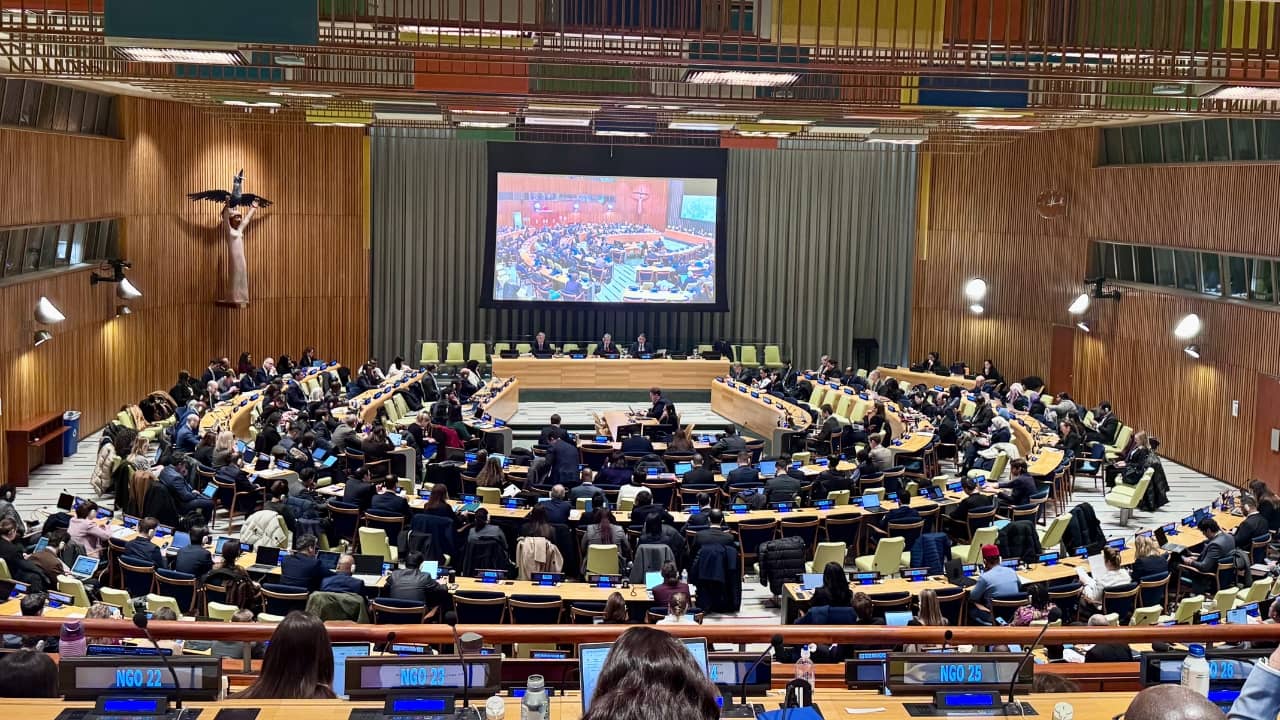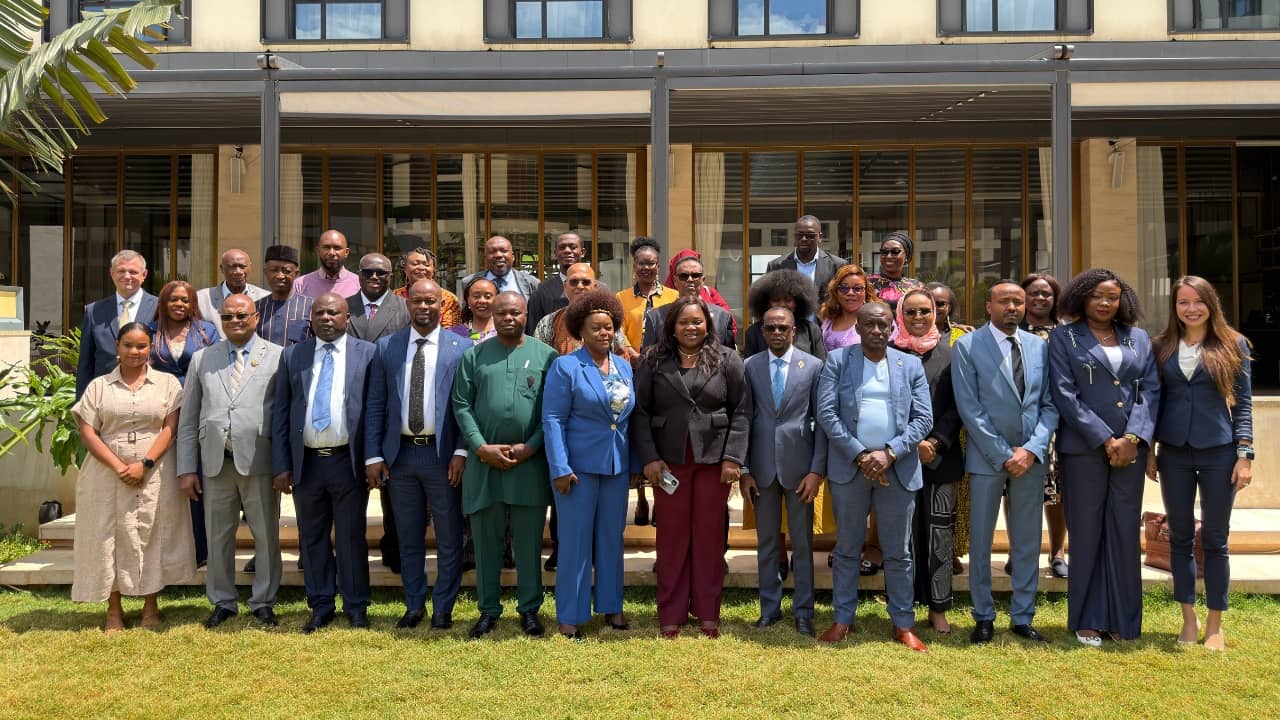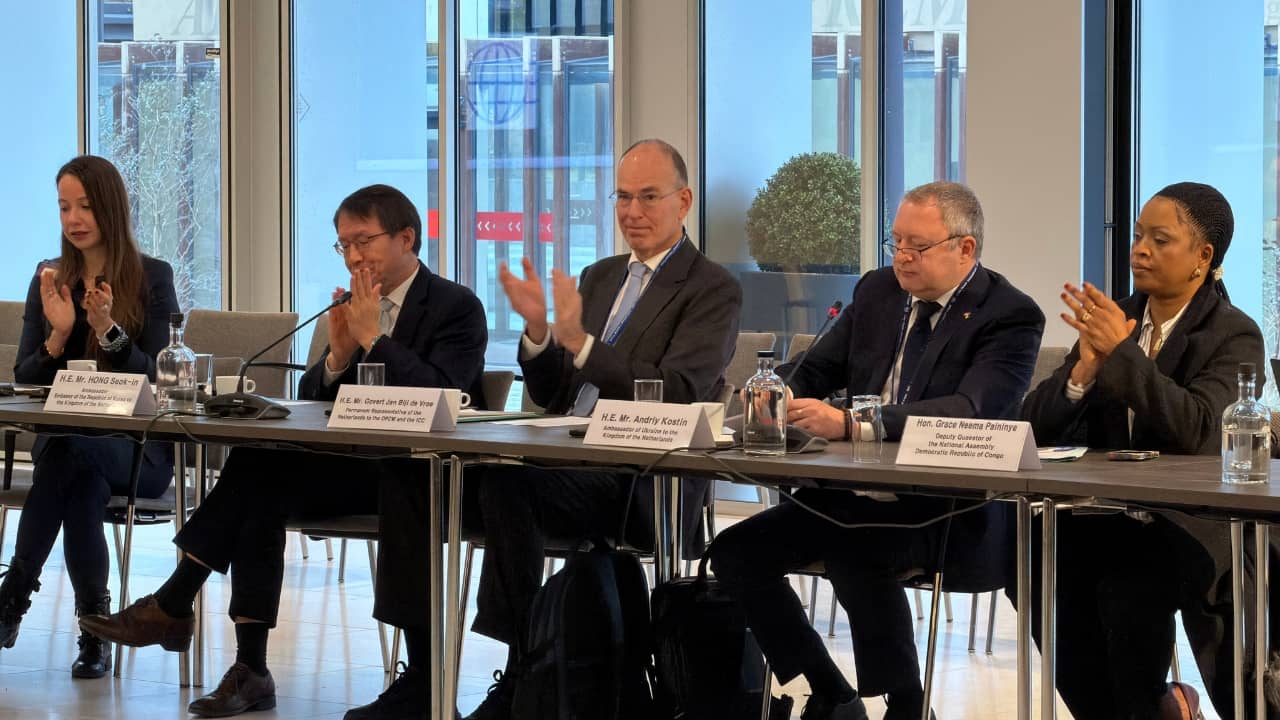National Congress of Brazil, Brasilia, Brazil, March 25-26, 2004
The Conference brought together approximately 600 participants, amongst whom were 140 parliamentarians and Government officials from 24 countries. In addition, three regional parliamentary organisations sent large delegations: the PARLAMENTO ANDINO, the PARLAMENTO LATINOAMERICANO [also known as “Parlantino”] and the Confederation of Parliaments of the Americas (COPA), which co-organised the event with PGA, the National Congress of Brazil and the Brazilian Ministry for Human Rights. The Conference received the support of the European Commission (EU), and the Ford Foundation, as well as of the Superior Tribunal de Justicia de Brazil, Associacao Paulista dos Magistrados, Banco do Brasil, and the United Nations Development Program.
The participation of Brazilian civil society was also significant. Lawyers, judges, academics, students, legal advisors of governmental and parliamentary bodies – including the Committee on Ethics of the Brazilian Lower House – journalists, human rights activists and other interested citizens attended the two-day event at Parliament. Many others followed the live-TV broadcast of the entire Conference on the national channel of the Chamber of Deputies, while others had the chance to view the opening session broadcasted by the national “TV Justicia”.
The opening session served to reaffirm the profound commitment of the three branches of Brazil’s Government to the ICC. President Lula addressed a message to all participants affirming that the fight against impunity and multilateralism are cornerstones of Brazil’s foreign policy. The principal promoter of the Conference and leader of PGA Brazil, Dip. Orlando Fantazzini, called on the Executive of his country to transmit to Parliament as soon as possible the Bill on implementing legislation, given that the Bill has been examined for over one year by the Administration. Mr. Fantazzini’s appeal was met by general consensus, and a meeting took place at the Ministerial level on March 25 – immediately after the opening session – to ensure that the consideration of the Bill is promptly finalised by the Executive and thereafter transmitted to Parliament for approval.
The keynote speech was delivered by ICC Judge Sylvia Steiner, who lucidly explained why the Court was established and how the Court respects and reinforces the national sovereignty of States rather then eroding it. Judge Steiner made a persuasive case for the ratification of the Rome Statute: firstly, underscoring that peace and justice are inextricably linked, and that a lasting peace can only be perceived as truthful and just if it is reparative for victims and retributive vis-à-vis perpetrators. Judge Steiner emphasised the permanent and treaty-based character of the ICC, as well as its independence from political organs such as the UN Security Council, which imposed to the international community ad hoc Tribunals with retrospective jurisdiction and a limited temporal, territorial and personal mandate.
After the opening, the conference’s proceedings were divided in four sessions, three thematic sessions on ratification (I), implementation (II) and protection of the integrity (III) of the Rome Statute, and a final session (IV) devoted to the discussion and adoption of the conference final document, which is hereby reproduced in Portuguese and Spanish (original) and in English (translation). The Speaker of the Chamber of Deputies of Brazil João Paulo Cunha hosted a working lunch at his institutional residence in which he called for universal participation in the ICC system.
(I) RATIFICATION
The objective of universal participation in the ICC system was the priority in the conference’s agenda, given that the year 2003 marked a significant deceleration in new memberships to the Rome Statute (only 5 in 2003, while 38 countries joined the “ICC club” in 2002, and 21 and 22 did so respectively in 2001 and 2000).
The Brazilian Minister for Human Rights Nilmario Miranda presented Brazil’s strong position in support of the Court and offered cooperation to States that are not yet parties to the Statute – especially the African Members of the Community of Portuguese-speaking countries (CPLP) – to accelerate the ratification and implementation process.
Ambassador Alberto Navarro, Head of the EU delegation in Brazil, underscored that the EU Common Position (2003) and Action Plan (2004) on the ICC provide with clear means of multilateral cooperation towards a universal and effective Court, while Ambassador Juan Antonio Yáñez-Barnuevo, the Legal Advisor of Spain, set the goal of 100 ratifications or accessions in the year 2004 as an important benchmark to ensure that the majority of the members of the international community are represented in the Court’s system.
Throughout the entire Conference, interventions of MPs from Non States Parties witnessed the profound commitment of all participating legislators to the affirmation of international criminal justice and the fight against impunity.
The Speaker of the Parliament of Cape Verde Dr. Aristides Lima, a member of PGA, stated that the constitutional and legislative processes that would lead to Cape Verde’s ratification could be completed within the year 2004. Also the bipartisan Angolan delegation, headed by the President of the Constitutional Affairs Committee Dr. Diogenes Boavida, described the ongoing constitutional revision process in Angola as the only requirement before ratification, which could occur towards the end of the current year.
Another country that could join the ICC club in 2004 is Suriname, in light of the strong statement presented by PGA Member Dr. Ruth Wijdenbosch, Vice-president of the National Assembly, who led a bipartisan delegation. Although the legislative process on ratification did not start yet, Dr. Wijdenbosch affirmed the constitutional compatibility of the Rome Statute with Suriname’s legal system and the determination of her country to fulfil the principle “never again” by joining the ICC system.
The Speaker of the Parliament of Mozambique Dep. Eduardo Joaquim Mulémbwe, who led a multi-party delegation, presented numerous constitutional obstacles that impacted on the ICC process in Mozambique, but reaffirmed the full support of his country for the ICC, which he characterised as “a great success of the International Community”.
Vast multiparty delegations from Dominican Republic, El Salvador, Guatemala and Nicaragua were also present and made concrete statements identifying obstacles and possible solutions to accelerate the ICC process in their respective countries. In this respect, the result of recent or upcoming political elections may give an important boost to such processes in Guatemala and Dominican Republic.
The complex Mexican situation was described with passionate support for international justice by Dip. Eliana García Laguna and Dip. Francisco Valdez de Anda, who are actively working on the deliberations on the ICC-related constitutional amendment in the Lower House, after its approval at the Senate. Also part of the delegation was Sen. César Jaúregui Robles, Vice-president of the Senate and member of PGA, who served as rapporteur of the first session and provided important input to the drafting of the Brasilia Declaration [enclosed].
Finally, PGA member Dip. Gabriel Ascencio provided a realistic description of the situation in Chile, revealing the elements of political blockage against the ICC in his country after the ratification bill passed with a few votes’ majority in the Lower House. Given that the current relationship between the majority and the opposition in the Senate is 44 to 44, and that the ICC is not yet perceived as a bipartisan issue, the only solution to the problem could be a change of majority in the Senate stemming from elections and the decrease in influence of the Senators-to-life.
(II) IMPLEMENTATION
Experts introduced the topic and parliamentarians commented on certain critical aspects of legislation and action in support of the Court.
Prof. Tarciso Dalmaso Jardim (Legal Advisor of the Brazilian Senate) revisited all the elements of perceived friction between the Rome Statute and the Brazilian legal order, explaining the solutions contained in the Brazilian constitutional amendment on the ICC [similar to the French one] and the draft implementing legislation. Hugo Relva of Amnesty International made a comparative analysis of strengths and weaknesses in Ibero American countries’ legislations and draft legislations. His critical remarks stimulated an open and frank discussions among MPs on the efforts of their countries to implement the duty of effective cooperate with the Court and the complementarity principle (i.e., incorporation of international crimes and general principles in the national penal systems).
Silvia Fernandez de Gurmendi (Chief of Cabinet and of the Complementary Unit at the Office of the ICC Prosecutor) enlisted the specific areas of cooperation where the Court welcomes State action or consent. Amongst them, she stressed the importance of States’ referrals of situations to the Court, the ratification of the Agreement on Privileges and Immunities of the Court (APIC) and the conclusion of the relationship agreement between the ICC and the UN.
Dip. Alberto Costa of Portugal (PGA) noted that most objections on the constitutionality of the Rome Statute in Lusophone countries appear to be dictated by a concept of “nationalism in penal matters”, which must not prevail over international cooperation, an essential tool to combat crimes in a globalised society. The implementing legislation process in Portugal thus necessitates acceleration for its completion, and the multi-party delegation of parliamentarians attending the Brasilia Conference have a fundamental role to play to this effect.
PGA Members from Argentina Sen. Marcelo Lopez Arias (Vice-president of the Senate) and Sen. Vilma Ibarra opened the discussion with a clarification on the status of the “ICC implementing legislation bill in their Constitutional Affairs Committee: the bill prepared by a group of experts and with the input from civil society might only be modified in minor details, but its adoption will remain a priority for Argentinean parliamentarians, especially those of the PGA multi-party National Group.
Other lawmakers mentioned the essential aspect of enacting good legislation to ensure that the Court’s system is fair and effective. Mexican and Suriname MPs stressed that the incorporation of international crimes in national law shall be done as soon as possible, not necessarily awaiting for the completion of the ratification process: as the Rome Statute reflects customary international law, they stressed that it must be respected also by States that are not Parties to it.
(III) PROTECTING THE INTEGRITY OF THE ICC STATUTE
The new Convenor of the PGA International Law programme, Sen. Alain Destexhe of Belgium, chaired an interesting discussion on the current endeavours of lawmakers to ensure that the Rome Statute is applied in its integrity, without unduly exempting anyone from its territorial jurisdiction.
As author of the first parliamentary resolution protecting the ICC Statute’s integrity in September 2002, Dip Margarita Stolbizer of Argentina (President of the PGA International Council) gave an
impressive overview on the concrete actions that may be undertaken by legislators in supporting the Court’s independent functioning. On the basis of the basic principles of “equality of all before the law” and “non-impunity”, Stolbizer made clear that any bilateral agreement or UN Security Council resolution aimed at limiting the Court’s effectives must be rejected by Parliaments and Governments that struggle for an international rule of law to replace the rule of force.
Dip. Felipe Michelini, a PGA member from Uruguay who successfully tabled a comprehensive parliamentary resolution to safeguard the ICC integrity in October 2002, enlisted reasons for legislators to resist the efforts of exempting nationals of one State from the Court’s reach. Firstly, “a country that freely adhered to an international regime like the one of the Rome Statute must apply in good faith the provisions of the treaty and fulfil its object and purpose, which is the fight against the impunity for international crimes, without discrimination”, Michelini said. Secondly, and most importantly, what message would a legislator send to his country-nationals if certain civilians would be exempted from the protection of the ICC when foreigners “immunized” from the Court would commit atrocities? The ICC has been established to protect the fundamental rights of victims: its jurisdiction cannot be derogated on the basis of the nationality of the perpetrator, and must apply to all crimes committed in the territories of each State Party.
The legal advisor of the Brazilian Ministry for Foreign Affairs, Prof. Antônio Paulo Cachapuz de Medeiros recalled how Brazil stated its disagreement with the renewal of UN Security Council resolution 1422 in the open session of the Council held in June 2003, thus inferring a similar position of Brazil on the renewal of SC resolution 1487 [which is identical to 1422] in the current year. The legal advisor described the principled reasons that led Brazil to refuse the United States’ proposal to enter into a Bilateral Non Surrender Agreement, which would have violated the letter and spirit of the Rome Statute, particularly articles 1, 17, 27, 86, 87, 89 and 90, as well as the “famous” article 98.
The strong commitment of MPs from Bolivia, Costa Rica, Ecuador and El Salvador echoed the tone of the three principal speakers, and a consensus agreement was found when the rapporteur of the session described the efforts of members of Parliamentarians for Global Action to maintain a constant dialogue with their peers of the United States Congress, so that current misunderstandings surrounding the ICC might be clarified and possibly resolved. The plenary also welcomed the announcement relating to the organisation of the III session of the “Consultative Assembly of Parliamentarians for the ICC & the Rule of Law”, which will be hosted by the Parliament of New Zealand in November 2004. Several MPs took the floor to express their concern to ensure continuity in the work on the ICC, which needs new initiatives to be brought to the attention of the general public and become a priority in the national political agendas.
(IV) FINAL SESSION
The final document of the Conference was the result of a compromise, which mainly emphasises the positive aspect of the fight against impunity rather than its most serious obstacles, which received profound consideration during the Conference’s discussions. The compromise reflects the difficult position of the delegations of certain States that are not yet Parties to the Rome Statute and received “pressures” to not support the ICC system.
However, thanks to the leadership of PGA member Dip. Orlando Fantazzini (Chair of the Committee on Ethics, Chamber of Deputies, Brazil), the final document found a general consensus. The “Brasilia Declaration on the ICC” is hereby reproduced in Portuguese, Spanish and English.
Parliamentarians for Global Action and all the institutions and NGOs collaborating on this project will work together towards an effective follow up to the Brasilia Declaration, which reaffirms the unanimous commitment of Ibero-American and Lusophone countries’ Parliaments to support the new system of international criminal justice and the rule of law.






